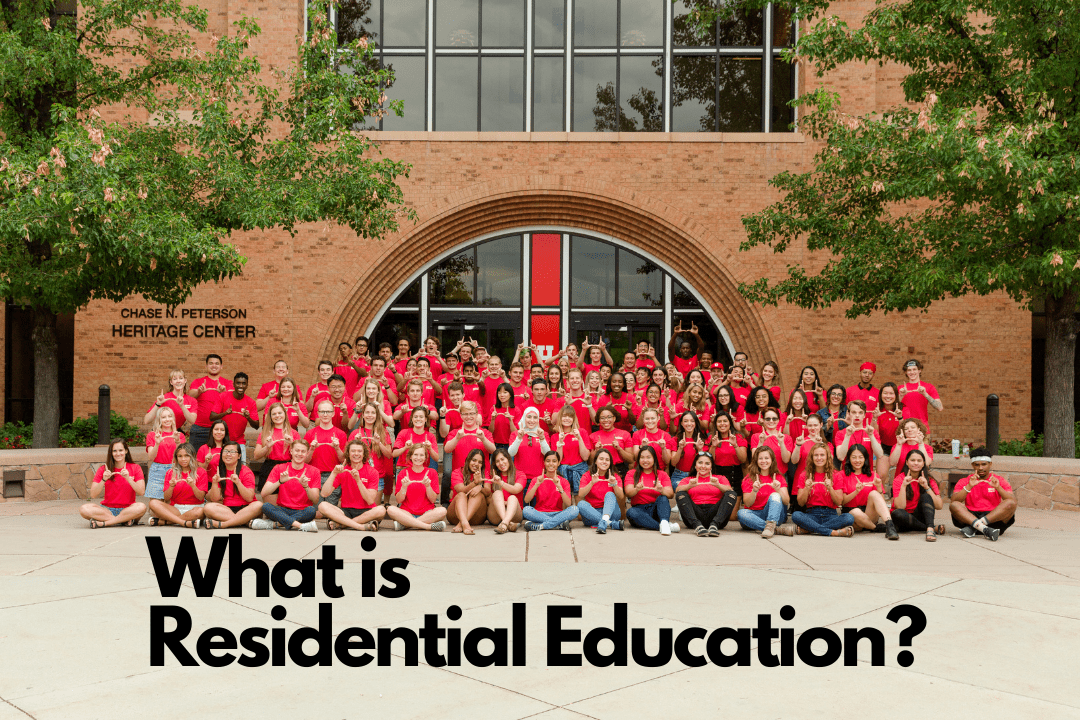
Editorial note: As of July 2023, the Residential Education program has changed to ResX.
Have you ever wondered what Housing & "Residential Education" means? When living on campus, you encounter the term everywhere. You can see the name on buildings, in videos and even on social media. Maybe you have spent most of your college career completely ignoring the HRE office altogether and simply call it “Housing'' when you lock yourself out in the middle of the night. Whatever your familiarity with the department might be, Residential Education (Res Ed) is a major part of the work we do every day, and it is often how our residents most interact with us, even if they aren’t aware of it. So, what exactly is Residential Education?
Residential LEarning Model
To better understand what Residential Education (Res Ed) is, you first need to understand its goals. In our department, the mission of Res Ed is called our Educational Priority:
“We develop an inclusive and engaged community where all members thrive”.
Residential Education (Res Ed) is an important part of ensuring you have an outstanding experience and grow during your time on campus. Res Ed takes on this goal by utilizing the Residential Learning Model, also known as "RLM". The RLM can be described with this ethos:
“We believe that residents learn many critical life skills and lessons as a result of their time living on campus. Similar to how a classroom curriculum or syllabus outlines learning that happens in a class, the Residential Learning Model at the University of Utah, based on curricular models, outlines the learning we want residents to gain as a result of living on campus.”
This curricular approach informs everything Res Ed does, from the learning outcomes outlined to help students develop and the individual tactics they utilize to attain those goals.
Learning Outcomes
Residential Education (Res Ed) has three learning outcomes that they strive to teach residents throughout their time living on campus:
- Collegiate Success
- Culture of Belonging
- Personal Development
Collegiate Success aims to help residents develop collaboration skills to ensure that they know how to learn and work not only alone but with others. Culture of Belonging aims to ensure the creation of the best communities by focussing on fostering respect and inclusion. Finally, Personal Development focuses on holistic wellbeing, while striving to improve oneself and your interpersonal skills.
Student Leaders
Residential Education (Res Ed) teaches these learning outcomes with both passive and active intentional interactions spearheaded by student leaders who live in your communities.
- Resident advisors (RAs)
- Residence Hall Association (RHA)
- Social justice advocates (SJAs)
Each of these groups takes on an active role in ensuring that our residents get a complete perspective on important topics and clear routes of support. Resident advisors (RAs) are frequently a first point of contact; they hold community meetings, individual conversations, mediate conflict and are there to share information and support resources. The Residence Hall Association (RHA) hosts events created by residents, allows them to take ownership over their own experience, develop their identity as a leader and grow in an area of event planning, marketing, resident relations or advocacy. The Social justice advocates (SJAs) host spaces to ensure fair and safe contemplation on difficult subjects, opportunities to explore your own identity and understand what it means to be a part of a larger campus community. All three types of student leaders listed above are intentionally developed to ensure that no matter where on campus you live or what you’re involved in, you have a complete support system of your peers!
Full-Time Res Ed Staff
Peer support isn’t the only way our residents can get support. Overseeing the RAs, SJAs and RHA are a team of resident directors (RDs). These full-time staff members are here to support both student leaders and residents as needed, in both 1:1 capacities and as a connection to a plethora of campus resources. Beyond RDs is our Resident Outreach Team. This team focuses on building connections with campus partners and our residents to ensure that residents have the easiest path to accessing all the support systems across campus. They also handle conduct situations and are there to ensure that our residents can continue to grow no matter what challenges they face. There are also other full-time staff members who live in your buildings to help support student development, including area coordinators (ACs), assistant directors and associate directors of Res Ed.
This was just a brief overview of what Residential Education (Res Ed) does and how the team works. If you are interested in learning more, getting involved or becoming a student leader, reach out to your RA, an SJA or an RHA Board Director to learn more about getting involved.
Recent Posts
- How to Achieve Your Goals May 17, 2024
- Activities In Salt Lake City This Summer May 10, 2024
- How to Navigate Marriott Library April 12, 2024
- Exploring Student leadership: A look into University Life March 25, 2024
- Latte Lounge February 23, 2024
